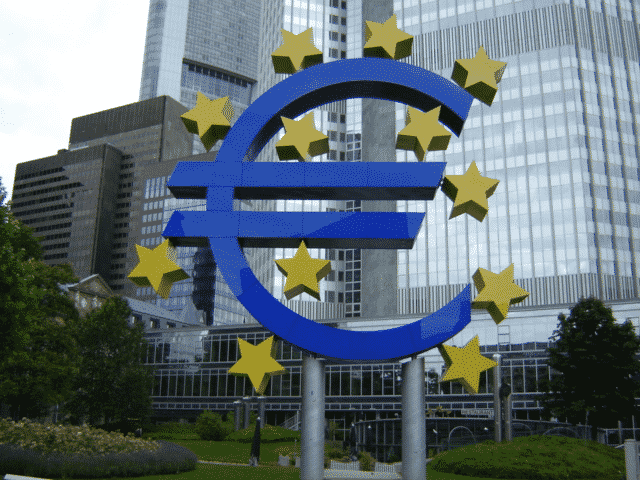BRUSSELS - A day
before nearly $2 billion in debt becomes due for repayment by Greece’s nearly
bankrupt government, European leaders gathered in Brussels on Thursday for a
long-planned summit meeting now overshadowed by the mounting risk of a Greek
default and revived fears about the future of Europe’s common currency.
All the same, Greece’s
travails and the threat these pose to Europe’s common currency, quickly muscled
their way onto center stage, with leaders on both the left and right voicing
concern about the failure of an agreement reached on Feb. 20 between Greece and
its creditors to calm, never mind end, the long-running Greek crisis.
France’s Socialist
president, François Hollande, siding with Germany and other countries that
insist Greece must honor the pledges made in February, said Thursday’s summit
meeting would emphasize “to one and all the respect of commitments.”
“There was an
agreement that was reached on Feb. 20 and then confirmed on Feb. 24 and we are
therefore going to put this agreement into effect,” he added.
Mr. Hollande and
Chancellor Angela Merkel of Germany were due to meet the Greek prime minister,
Alexis Tsipras, late Thursday on the sidelines here to discuss ways to contain
a crisis that has again stirred speculation of a possible “Grexit,” or Greek
exit, from the 19-nation eurozone.
In a sign of tensions,
Charles Michel, the prime minister of Belgium, another country that uses the
euro, complained that mediation with Greece should involve all members of the
eurozone and could not be done by a few individual members.
“I am angry,” Mr.
Michel said, according to Belgian news reports. “We did not give a mandate to
either France or Germany to negotiate.”
A departure from the
eurozone could force Greece to leave the European Union, too, a step that
would, for the first time, throw into reverse a process of integration that has
advanced steadily for more than six decades.
It would also raise
doubts about the future integrity and viability of Europe’s most significant
joint venture, its common currency.
“The eurozone is more
than a fixed-rate system, it’s more than that,” Pierre Moscovici, the European
commissioner for economic and financial affairs, said at a news conference in
Brussels on Wednesday. “It’s a single currency and the single currency has to
be perpetual for all its members and as soon as one leaves, the question is,
who’s next?”
Greece’s uncoupling
from the rest of Europe would also heighten geostrategic concerns, particularly
in Washington, by raising the prospect of Greece turning to Russia, a country
with which it has close historical ties, or even to China for aid.
Finland, a eurozone
member long hostile to cutting Greece any slack, warned that trust in the euro
hinged on carrying through on the deal reached last month by the Eurogroup,
consisting of eurozone finance ministers.
“At the end of the day
the euro is about confidence and we have to be confident we implement the
decisions that we take,” the Finnish Prime Minister, Alexander Stubb, told
reporters in Brussels.
One senior European
diplomat, describing Greece as “the elephant in the room” at the meeting,
lamented that “remarkably little progress has been made” in talks between
Greece and creditors and that the stalemate meant “we are very near a crunch.”
The February deal
extended Greece’s current bailout for four months but made the release of any
pending payments to Athens contingent on its adoption of measures to boost tax
revenue, contain government spending and implement labor market and other
changes. Greece has had two international bailouts worth 240 billion euros, or
$273 billion, since 2010.
Instead, the Greek
Parliament, dominated by the radical left-wing Syriza party, passed a
“humanitarian crisis bill” on Wednesday that the European Commission, one of
Greece’s principal creditors, objected to as a signal that Athens was
“proceeding unilaterally and in a piecemeal manner that is inconsistent with
the commitments” made in February.
Mr. Tsipras, the Greek
prime minister, has faced criticism from some supporters for accepting a deal
that effectively continued an austerity program his party had vowed to scrap.
He seized on the European Commission’s objections to the anti-poverty bill to
try and rally outrage against Brussels, presenting Greece’s creditors as
hardhearted Scrooges who want to veto help for the poor by bureaucratic fiat.
In what has become as
much a public relations battle as a debate over budget targets, Mr. Moscovici,
the bloc’s senior economic policy maker, denied this, saying there was “no
question of us putting any kind of veto on a humanitarian bill.” Brussels, he
said, merely wants to be consulted, as Athens had promised to do.
While many Greeks seem
to support their government, many European leaders and officials are
exasperated by what they see as a push by Athens to ignore its February pledge
and a campaign to whip up public anger against the institutions and countries,
particularly Germany, whose cash Greece desperately needs to avert default.
“The anti-German and
anti-European rhetoric by Greek ministers have cost the Greek government a lot
of credibility,” Guy Verhofstadt, head of a centrist bloc of legislators in the
European Parliament said.
Instead of denouncing
Germans and other creditors, Mr. Verhofstadt added, “first Tsipras should show
that he is willing to reform Greek society. It is very disappointing we are
already waiting for months for a serious reform plan.”




Δεν υπάρχουν σχόλια:
Δημοσίευση σχολίου